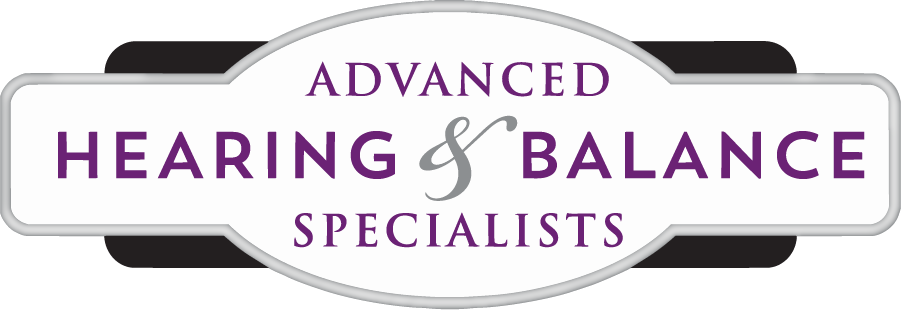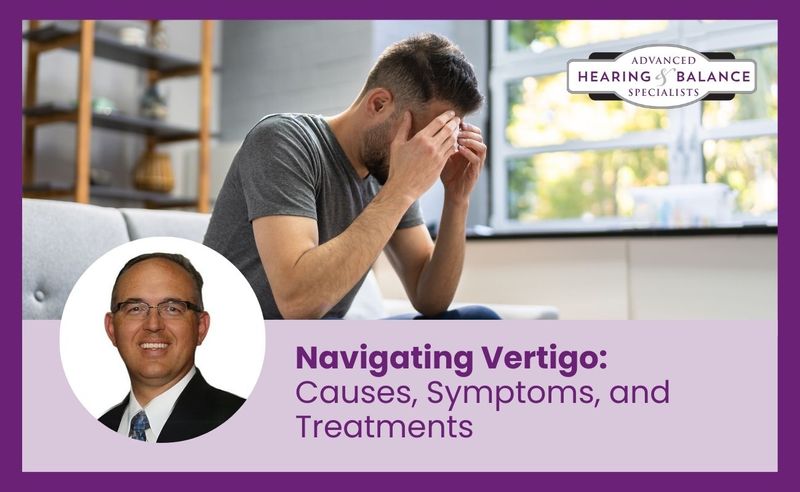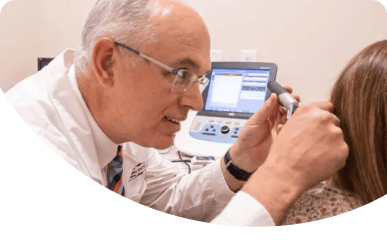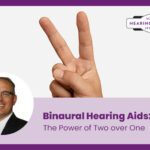Vertigo affects an estimated 15-35% of adults at some point in their lives and is prevalent among older adults, with the highest incidence observed in individuals aged 65 and above. Still, vertigo affects people of all age groups, including children, although less commonly so. Vertigo’s likelihood does increase with age and is often associated with balance disorders, inner ear problems, and other health conditions that become more frequent with age.
The impact of vertigo on daily activities and overall quality of life can be significant. Here, we take you through the causes, symptoms, and treatments of vertigo, with the aim to highlight the importance of proper diagnosis and management.
What Is Vertigo?
Vertigo is a disorienting sensation where you feel like you or your surroundings are spinning or moving. It can be a distressing experience, often leading to nausea, dizziness, and balance issues. Vertigo is not a disease but a symptom indicating an underlying issue within the vestibular system, which is responsible for maintaining balance. The vestibular system includes parts of the inner ear and brain that help control balance and eye movements. When these areas are affected, vertigo can result.
At Advanced Hearing & Balance Specialists, our Doctors of Audiology understand how debilitating vertigo can be, and we’re committed to helping our patients in Utah and Nevada find relief.
How Vertigo Differs from Other Balance Disorders
While vertigo is a type of dizziness, it is distinct from other balance disorders such as disequilibrium (a general feeling of unsteadiness) and lightheadedness (a feeling like you might faint). Vertigo specifically involves a false sense of motion, typically described as spinning or swaying, and is often triggered by changes in head position or movement.
Causes of Vertigo
Vertigo can stem from various causes, ranging from benign conditions to more serious health issues. Understanding the root cause is crucial for effective treatment.
Benign Paroxysmal Positional Vertigo (BPPV)
BPPV is one of the most common causes of vertigo. It occurs when tiny calcium crystals in the inner ear become dislodged and move into the semicircular canals, which are responsible for sensing head motion. This disruption causes the brain to receive mixed signals about your body’s position, leading to vertigo.
Meniere’s Disease
Meniere’s disease is a chronic condition characterized by episodes of vertigo, hearing loss, tinnitus (ringing in the ears), and a feeling of fullness in the ear. It is believed to result from abnormal fluid buildup in the inner ear, affecting balance and hearing.
Vestibular Neuritis
Vestibular neuritis is an inflammation of the vestibular nerve, usually caused by a viral infection. This condition disrupts the nerve’s ability to transmit balance information from the inner ear to the brain, resulting in vertigo.
Labyrinthitis
Similar to vestibular neuritis, labyrinthitis involves inflammation of both the vestibular nerve and the labyrinth (a part of the inner ear). This condition can cause vertigo, hearing loss, and tinnitus, often following a respiratory infection.
Migrainous Vertigo
Migraine sufferers may experience vertigo as part of their migraine attacks. Migrainous vertigo is characterized by episodes of vertigo associated with migraine symptoms, such as headache, visual disturbances, and sensitivity to light and sound.
Other Causes
Other potential causes of vertigo include head injuries, certain medications (ototoxic drugs), and underlying health conditions like cardiovascular disease or multiple sclerosis.
Symptoms of Vertigo
The primary symptom of vertigo is a sensation of spinning or moving. However, individuals with vertigo may also experience:
- Nausea and vomiting
- Balance problems and unsteadiness
- Sweating
- Abnormal eye movements (nystagmus)
- Hearing loss (in cases like Meniere’s disease or labyrinthitis)
- Tinnitus
These symptoms can vary in severity and duration, from brief episodes to prolonged attacks lasting hours or even days.
Diagnosing Vertigo
Accurate diagnosis is essential for effective treatment. At Advanced Hearing & Balance Specialists, we use a range of diagnostic tests to determine the cause of vertigo. These may include:
Auditory Brainstem Response (ABR)
ABR tests the electrical activity in the auditory pathway from the inner ear to the brain. It helps assess hearing sensitivity and identify any neurological issues that might be contributing to vertigo.
Electrocochleography (ECoG)
ECoG measures electrical potentials generated in the inner ear in response to sound stimulation. This test can help diagnose Meniere’s disease by detecting abnormal fluid buildup.
Videonystagmography (VNG)
VNG uses infrared goggles to record eye movements. This test helps evaluate the function of the inner ear and central motor functions by analyzing how your eyes respond to visual stimuli and changes in head position.
Posturography
Posturography assesses your ability to maintain balance under different conditions. This test helps determine which part of the balance system (vestibular, visual, or somatosensory) is affected.
Treatment Options for Vertigo
The treatment for vertigo depends on its underlying cause. Some effective treatments include:
Canalith Repositioning Maneuvers (CRMs)
For BPPV, CRMs like the Epley maneuver are highly effective. These maneuvers involve a series of specific head and body movements designed to move the dislodged calcium crystals out of the semicircular canals and into a part of the ear where they can be reabsorbed.
Medications
Depending on the cause, medications can help manage vertigo symptoms. These may include:
- Antihistamines: Help reduce vertigo and nausea.
- Antiemetics: Help control nausea and vomiting.
- Benzodiazepines: Can help relieve severe vertigo symptoms.
- Diuretics: For Meniere’s disease, to reduce fluid buildup in the inner ear.
Vestibular Rehabilitation Therapy (VRT)
VRT is a specialized form of physical therapy designed to improve balance and reduce dizziness through exercises that promote the brain’s ability to compensate for inner ear dysfunction.
Lifestyle and Dietary Changes
For conditions like Meniere’s disease, reducing salt intake can help manage fluid levels in the inner ear. Avoiding caffeine, alcohol, and nicotine can also help reduce vertigo symptoms.
Surgical Options
In rare cases where other treatments are ineffective, surgical options may be considered. Procedures like vestibular nerve section or labyrinthectomy can help manage severe, chronic vertigo.
Managing Vertigo with Advanced Hearing & Balance Specialists
Vertigo can be a challenging and disruptive condition, but with the right diagnosis and treatment, it is possible to manage and reduce its impact on your life. At Advanced Hearing & Balance Specialists, our team of experienced audiologists is dedicated to providing comprehensive care for vertigo and other balance disorders. We offer a range of diagnostic tests to accurately identify the cause of your vertigo and develop personalized treatment plans to help you find relief. For patients in Utah and Nevada, we are proud to provide:
- Expertise: Our audiologists have specialized training and experience in diagnosing and treating balance disorders.
- Comprehensive Care: We offer a full range of services, from diagnostic testing to individualized treatment plans.
- Patient-Centered Approach: We prioritize your needs and work closely with you to ensure the best possible outcomes.
If you or a loved one is experiencing vertigo, don’t wait to seek help. Contact Advanced Hearing & Balance Specialists today to schedule an appointment and start your journey toward better balance and improved quality of life.
Our top audiologists in Utah and South Nevada are here to support you every step of the way.





